Blog
Acupuncture to Treat Anxiety Disorders

According to the National Institute of Health, “Anxiety disorders are the most common mental illness in the U.S., affecting 40 million adults in the United States age 18 and older.” In addition, according to the same source, women are 60% more likely to experience anxiety and the average onset of an anxiety disorder is age 11. However, only 42.2% of those with anxiety seek any kind of treatment, and of that only 33.8% are receiving minimally adequate treatment. The take away is that anxiety is something we all experience at some level and we are not doing enough to treat it.
Anxiety can be caused by many factors. From a specific event like an upcoming test, to an uncomfortable conformation with a loved one, to a more serious trauma, anxiety has many roots. Although the roots of the anxiety vary from person to person and must be identified and treated, the anxiety one experiences needs to be managed. Below are some of the bodily responses of anxiety:
- Physical symptoms such as an irregular heartbeat.
- Cognitive symptoms, which can cause negative thoughts.
- Behavioral symptoms, which may include uncharacteristic aggression or restlessness.
- Emotional symptoms, such as fear.
Acupuncture can be a good way to treat anxiety. According to Psychology Central, “In a comprehensive literature review appearing in a recent edition of CNS Neuroscience and Therapeutics, it was proved that acupuncture is comparable to cognitive-behavioral therapy (CBT), which psychologists commonly use to treat anxiety (Errington-Evans, 2011). Another study published in the Journal of Endocrinology in March 2013 discovered stress hormones were lower in rats after receiving electric acupuncture (Eshkevari, Permaul and Mulroney, 2013).” Science clearly agrees that acupuncture is a more than adequate way to help manage anxiety.
To understand how acupuncture helps relieve anxiety is to understand the thoughts behind Traditional Chinese Medicine (TCM). TCM believes in a force called QI that regulates the body’s overall health. QI, like blood, moves through the body via pathways called meridians. When factors like stress or changes in environment disrupt the flow of QI, health issues follow, according to the University of Miami Health System. When an acupuncturist inserts needles at a specific point in the body, balance is restored to the QI and the body’s overall health, the University of Chicago Medicine states. This might seem hard to grasp, but if you consider that QI is just another way of describing chemical reactions taking place in the body, it makes more sense.
Acupuncture needles can affect the body’s chemicals reactions. For example, needles placed in the correct acupuncture point can cause the nervous system to produce painkilling chemicals. It can also jump start the body’s natural healing process or stimulate the part of the brain that controls emotions, including anxiety, according to Dr. Daniel Hsu, a Doctor of Acupuncture and Eastern Medicine. Specifically referring to how acupuncture helps with anxiety, researchers at Georgetown University led by Eshkevari used lab studies to demonstrate that acupuncture slows the body’s production of stress hormones.
One study, published online in the Journal of Acupuncture and Meridian Studies showed that participants who underwent acupuncture for anxiety saw improvements after just one 20-minute session. This means that after just one session, patients could feel relief from their anxiety, and because acupuncture changes the chemical balance in the brain, which makes the patient feel better, it may mean less medication is needed. As the chemicals in the brain are altered, medication, which does the same thing, may no longer have a role to play.
It is important to note that any acupuncture session comes with general, normal side effects. They include minor bruising and dizziness, both of which are minimal as opposed to psychotherapy drugs, which can have more serious side effects. In this sense, acupuncture is much safer for treating anxiety. Plus, unlike drugs that can lead to dependency, acupuncture is not likely to have the same addictive effect.
When it comes to trying acupuncture for anxiety, you have nothing to lose. With a licensed acupuncturist, the risks are almost non-existent and are outweighed by the potential benefits. After just a few sessions, you may even find yourself sleeping better and enjoying other health benefits. If already on treatment for anxiety, acupuncture can make a good addition to your regimen. If it works, you can speak to your doctor about limiting or reducing medication. It is a win-win situation for your health. Even just trying a treatment will make you feel better because you are taking action to alleviate the anxiety instead of worrying and increasing your anxiety level.
Like many medical diagnoses, there is not always a one-size fits all solution. Depending on the person and the individual diagnosis, treatment may vary. For some people, acupuncture alone may work. For others, a combination of therapy, medication, and acupuncture may be best. Consult with your doctor before starting any treatment and discuss a treatment plan that will work for you.









